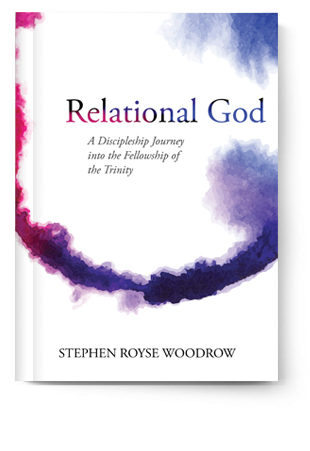Should we make our teenagers come to Church? Parenting is one of the hardest jobs in the world. It should be seen as a calling for it requires Divine assistance. One of the most sobering things about parenting is that it is not necessarily what we teach our kids, that sticks, but it is how we live our lives that truly sticks. The things we teach them stick if they line up with how we live. But if we try to teach them something we are not living, not only will it not stick, it will instill a deep skepticism that often stays with them. And this is especially true when it comes to spiritual matters.
So, should we make our teenagers come to Church? Let me ask you, “Do we make our teenagers go to school?” Ultimately, what is more important? Is it more important that they go to school or are part of the Body of Christ? Please hang with me and take some time to think deeply about this. This really is more of an issue for parents and our view of Church and truly where our faith is, than primarily a teenager issue. Today, within the Christian Church most parents take a laissez-faire approach to their teenager’s involvement with Church. Parents often take the approach that they don’t want to force it upon their kids and embitter them. Sometimes it’s just not worth the battle. Others take the approach that their teenagers should be able to make this decision on their own for it is important for their faith to be their own. And still others relinquish this responsibility to their teenagers to youth workers and the youth pastor to get their kids involved.
Now, it is a blessing when our teenagers want to go to church and want to be involved. But, even if this is so, is there a bigger responsibility as parents to help them understand what Church is and why it is important for the family? A major problem today within Western culture is that we have adopted a radically individualized approach to Christianity. If we have grown up in the Church, we have heard it emphasized that Christianity is about a “personal relationship with Jesus” and that we are to have a “personal Savior.” There is a big problem with that terminology. It doesn’t exist anywhere within the scriptures. We have missed the larger context of the scriptures to realize that they are all to be lived out in the context of Church community. They are not to be primarily taken as individual personal devotion. Now, of course, it is important to have a personal relationship with Jesus, but never in isolation, it is always to be within church community. The western idea that we can love Jesus and not love His Church is a lie and cannot be supported within the scriptures. But this is what so often is communicated to our teenagers because it is what parents believe and model to their teenagers. And even worse, it often is what the Church itself has taught. Now, I know this is raising all kinds of issues. I encourage you to take your thoughts to the scriptures and ask God to speak to you. I would love to hear from you any questions or feedback.
There are no perfect families, because there are no perfect people. Meshell and I have five kids. We have had our struggles, and battles like everyone else. And we have had the additional pressure of having to navigate our culture’s negative tag of “PK” (pastor’s kid) upon our kids. Like most parents, the real push backs by our kids started taking place as they transitioned into being teenagers. This is when kids start to think they are smarter than their parents and want to do what they want to do. So, of course, it is during this very important season that they start to resist coming to Church if they have not already. At first, I took the laissez-faire approach and let them off the hook thinking I didn’t want to be that legalistic pastor that embittered his kids to run from church forever. But as Meshell and I processed and prayed through this we didn’t have peace. At the same time, it was all out warfare to have a family dinner where everyone was together around the table at the same time and not walled off or plugged into their media device. My laissez-faire approach started having huge negative impacts upon our family. We were becoming more disconnected with each other and it just didn’t feel right not being all together around the dinner table or not all together at Church.
One day, it hit me, I felt like the Lord spoke to me very clearly on this issue. He took me through a series of questions in my mind like, “Steve, is My Church optional for you?” I said, “Well Lord, I am the pastor and work at the Church and am required to be there.” The Lord responded, “Steve, that is what you do, that is your vocation, that is not ‘Who You Are.’” He went on, “You are my child and have been saved into My family, the Body of Christ.” This changed everything for Meshell and me and ultimately for our family’s approach to the dinner table and to Church. As we gathered around the dinner table one night I shared our new perspective that we were going to start living by. We are the Woodrows. You have been born into this family and you had nothing to do with that, it was God’s plan. You are a Woodrow, and to not be willing to gather together at the dinner table and serve each other is to reject God’s calling of who you are. Also, we follow Jesus. And our family is part of a larger family, the Body of Christ, and to not desire to gather with your family at Church is to reject “who you are.” It ultimately is not a question of if we should go to Church, it is a question of “who we are.” This is our identity and this is what we do. It is not optional, just like refusing to gather for family dinner is not optional. Our identity as part of God’s larger family is far more important than school or anything else because it is who we are and defines who we are becoming and where we are going.
Now, things did not shift immediately. But I can give testimony that from that time on the kids started getting it and yes there are struggles but it is very difficult for a teenager to continue to argue against something that defines who the family is rather than just an optional thing the family does.
Before parents can make a decision on how they communicate this to their teenagers they first need to come to a place of conviction themselves about what God’s Word says about Church. We cannot ask our kids to do something we ourselves are not committed to. So, yes we should make our teenagers come to Church. Not out of convenience or legalism, but because it is “who we are” if we love Jesus we love His Church. If this understanding is not experienced by a teenager when they are still home, they will leave the home without a sure foundation of “who they are” and will search in their young adult lives for meaning and purpose outside the local Church. Thankfully, we have a loving heavenly Father who graciously steps into our kids lives even in the midst of all of our shortcomings and mistakes as parents.
I will never forget our heavenly Father’s comforting words to me in a really dark time, “Steve, don’t forget I am a better Father to your kids than you could ever be – trust ME!” As followers of Jesus, the things that really matter in life, the blessings that flow from the Father above come primarily through being an intimate part of His family the Church.
10






